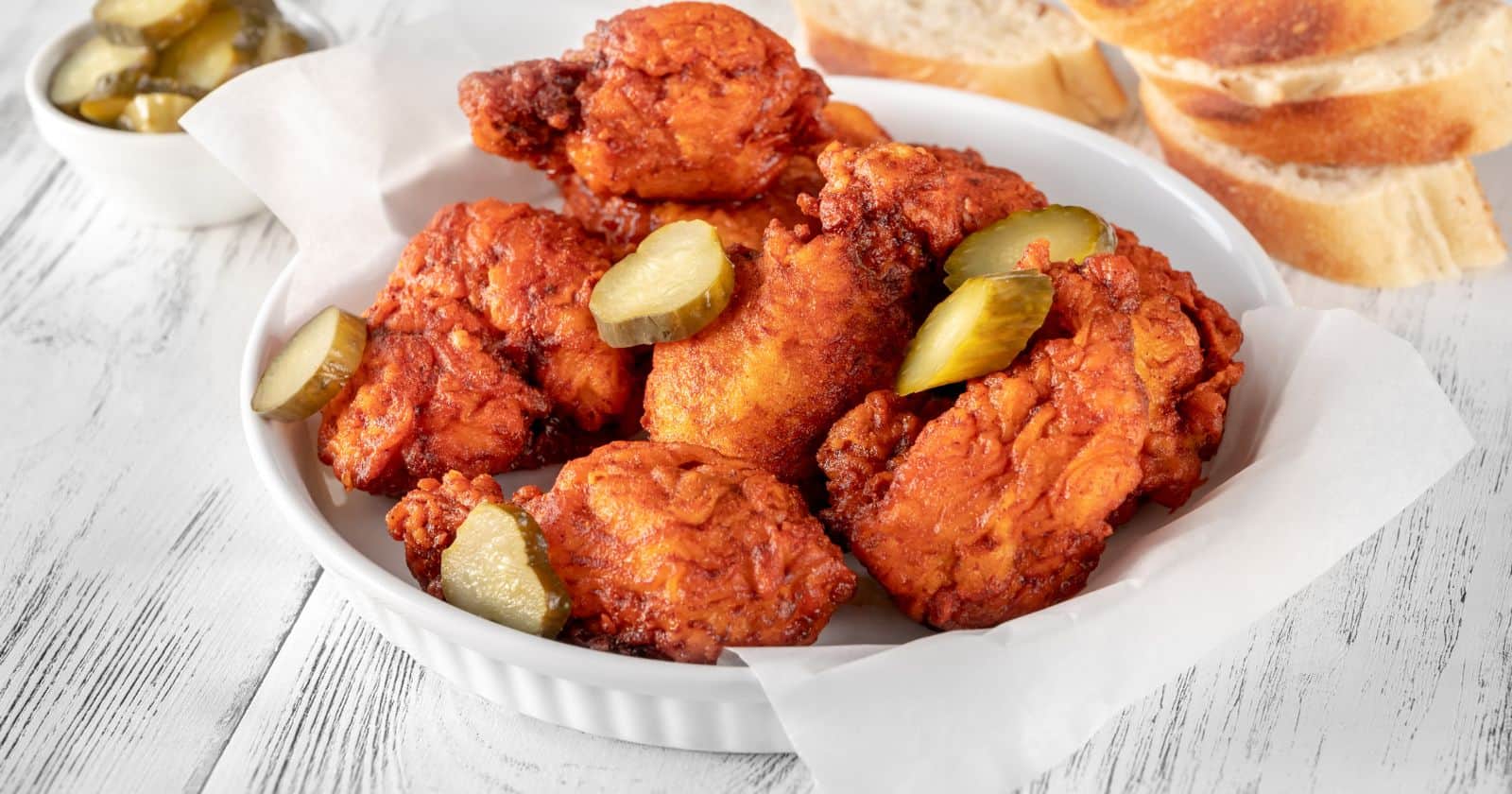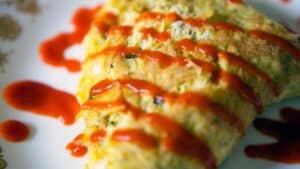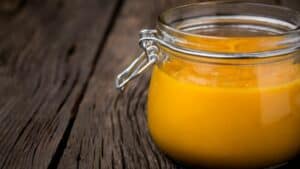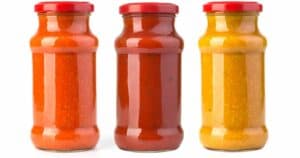Fiery, smoky, tangy – the flavors of Nashville hot chicken are unmistakable. But just how spicy is Nashville hot sauce? If you love mixing up some heat in the kitchen or enjoy the burn of “true” Nashville-style chicken, you need the inside scoop. The fire of this famous sauce can vary, and what feels pleasantly tingly to one person might have others reaching for milk.
The good news is authentic Nashville hot sauce won’t singe your taste buds into oblivion. The traditional version offers a medium heat by hot sauce standards. While it brings a kick, it also has balance.
The better recipes use a custom blend of peppers and spices to deliver a flavorful punch of heat you can handle. Savory cayenne and milder peppers work together to
Nashville hot sauce recipes can range from roughly 5,000 to 50,000 Scoville units on average. That means most fall into the upper end of medium heat, though a few extra-spicy versions may creep higher.
For comparison, a jalapeño pepper hits around 5,000 units. So you can expect a little more fire than your average pickled pepper, but not the sweltering heat of a habanero or ghost chili sauce. Just enough to make your taste buds tingle!
What Gives Nashville Hot Sauce its Kick?
The key ingredient providing the trademark Nashville heat is the mighty cayenne pepper. This moderately hot chili pepper forms the flavorful base for many Nashville-style hot sauces. The capsaicin found in cayenne gives it a spicy Scoville rating around 40,000 units. When blended into sauces, cayenne brings a bright, fruity heat.
Other hot peppers like jalapeños, serranos, and habaneros may supplement the cayenne pepper to amp up the spiciness. Chili powders, flakes, or extracts also boost the burn. These ingredients deliver bold, intense heat sensations.
But Nashville hot sauce isn’t just about burning you up. The better versions balance and build flavor with spices like:
- Paprika
- Garlic
- Onion
- Black pepper
- Mustard
- Brown sugar
When these seasonings combine with the chili peppers, the result is a sauce that provides a flavor rollercoaster with its sweet, savory, smoky notes and moderate spicy finish.
Scoville Scale: How Nashville Hot Compares
The best way to measure a chili pepper or hot sauce’s heat level is by using the Scoville scale. This method calculates the capsaicin concentration in Scoville Heat Units (SHU). The higher the number, the hotter the pepper or sauce will taste.
Most Nashville style hot sauces fall around 2,500 to 10,000 SHU. This places them in the upper end of the “medium” heat range, with a bit of bite but not excessive, overwhelming heat. Some extra fiery versions may creep up near 50,000 SHU at the lower range of “hot.”
To compare, jalapeño peppers land around 5,000 SHU. Habanero chili peppers pack about 200,000 to 300,000 SHU. Nashville hot brings more kick than a pickled pepper garnish, but won’t melt your face off like a ghost pepper sauce at over 1 million SHU. The moderate
How Brands and Recipes Impact Heat
While traditional Nashville hot sauce aims for a “medium” heat profile, there can still be variation between brands and recipes. Here’s how it differs:
- Small batch or craft recipes tend to use higher concentrations of fresh peppers. This creates more natural chili heat.
- Commercial brands may use some chili extract or powder to standardize heat levels for consistency. This may create a more generic “hot sauce” flavor.
- Extra spicy specialty sauces bump up the SHU with extra peppers or extract for fiery enthusiasts.
- Milder versions tone down the chili amounts, emphasizing the tangy, savory seasoning blend instead.
- Home recipes can vary wildly based on personal tolerance and ingredient choices. More or less cayenne alters the heat dramatically.
No matter the brand or recipe, look for sauces that source chili heat from real peppers instead of artificial extracts. This ensures the most authentic, nuanced flavor.
Individual Tolerance Makes a Difference
At the end of the day, Nashville hot sauce
- Spice tolerance – Frequent spicy food lovers may find Nashville heat quite mild, while newbies might find it fires things up.
- Tongue sensitivity – Your number of heat-detecting taste buds affects perceived spiciness.
- Digestive health – Issues like GERD or ulcers may increase hot sauce discomfort.
- Cultural background – Cuisine you grew up with influences comfort with chili pepper heat.
The Scoville scale can’t fully predict personal experiences. For some, 10,000 SHU tastes like nothing, while others sweat at 1,000. Enjoy Nashville heat at your own comfort level.
Tips for Using Nashville Hot Sauce
Nashville hot sauce adds its magic to wings, chicken tenders, ribs, tacos, chili, eggs and more. For the best flavor and heat control:
- Read each label to understand the SHU or pepper blend so you know what to expect.
- Start with a small amount – a few drops or shakes to test your reaction and slowly increase as desired.
- Mix into dips, dressings and dishes to dilute heat instead of pouring directly on food.
- Pair with cooling ingredients like yogurt, sour cream, avocado or cucumber to balance the burn.
- Use milder sauces to allow other flavors to emerge instead of just feeling tongue-scorched.
- Substitute less
spice to make recipes kid-friendly while satisfying fiery adult tastes. - Choose oil-based sauces for the most flavorful heat that evenly coats food.
Spice it up – but
FAQ: How Hot is Nashville Hot Sauce?
What chili pepper is typically used in Nashville hot sauce?
Cayenne peppers are most commonly used. They provide a bright, fruity heat around 40,000 Scoville units. Jalapeños, serranos, or habaneros may also be used.
What’s a good Nashville hot sauce for people who don’t like a lot of heat?
Look for brands advertising “mild” or check labels for lower Scoville ratings under 5,000 units. Avoid sauces with extract – it can overwhelm flavors.
Is it possible to make your own Nashville hot sauce at home?
Absolutely! You can experiment with different peppers and
Will I build up a tolerance to Nashville hot sauce over time?
Yes, regular exposure to capsaicin can increase your tolerance, making Nashville heat seem milder the more you eat it. Be patient and gradually increase your intake.
What food should I use Nashville hot sauce on?
It’s perfect for hot chicken, wings, ribs, tacos, chili, eggs, dips, dressings, pulled pork, and more. Mix into dishes or drizzle to taste. Avoid using too much at first.





